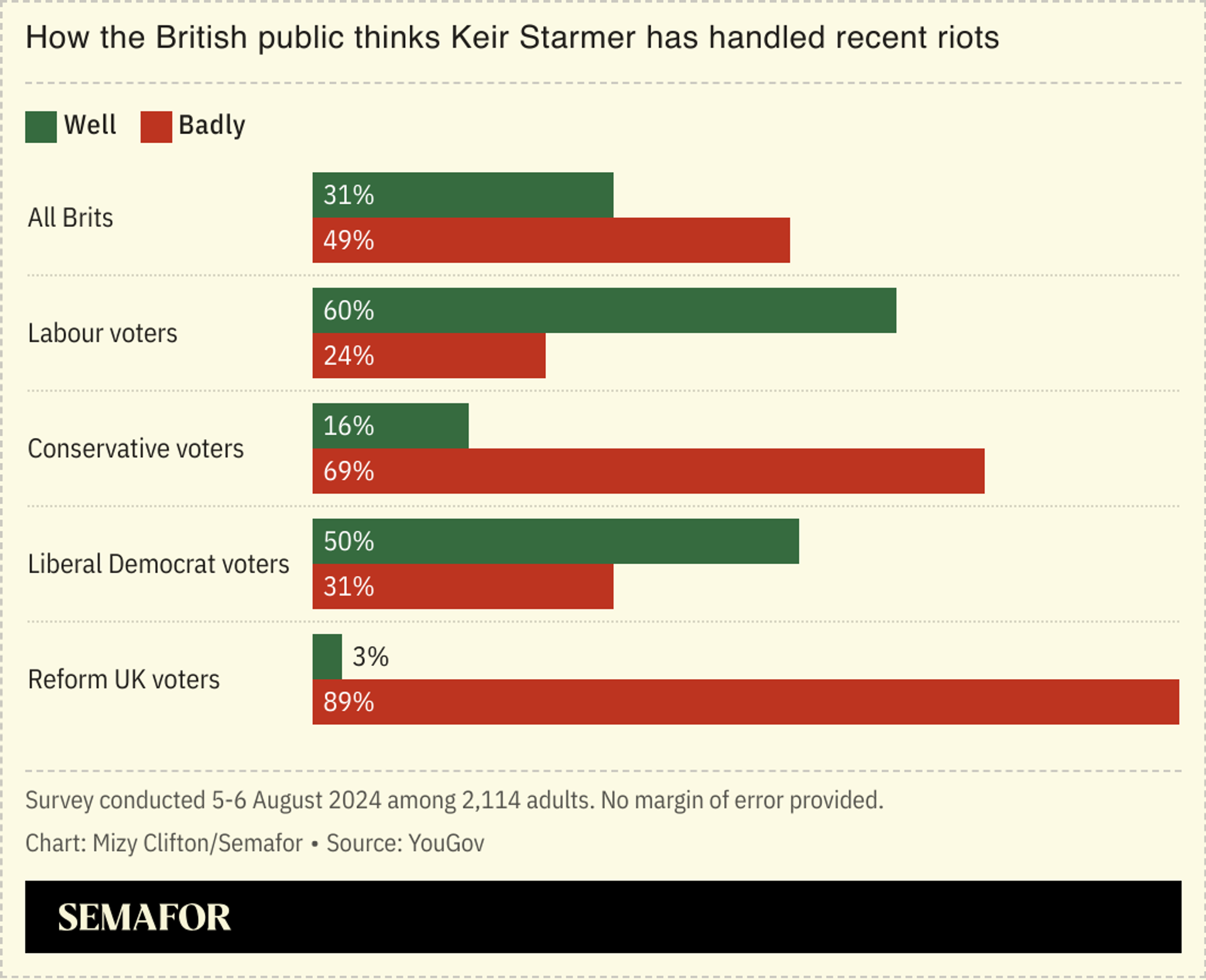The News
British lawmakers want to summon Elon Musk before the UK Parliament over X’s alleged role in fueling the country’s far-right riots, Politico reported.
Violent anti-Muslim and anti-immigrant attacks have gripped the UK after three children were killed in a knife assault last week. Musk’s social media platform has been accused of spreading misinformation about the attacker’s identity: He was wrongly identified as a Muslim asylum seeker, leading rioters to attack a mosque.
Musk himself has stoked divisions on X, writing that “civil war is inevitable” in the UK. He also accused Prime Minister Keir Starmer of dealing with demonstrations more harshly than he would if they had involved members of ethnic minorities — an unsubstantiated claim dismissed by the police chief as “complete nonsense.”
SIGNALS
Musk won’t want to be held accountable
British parliamentary committees have tried to summon tech executives in the past, notably Meta’s Mark Zuckerberg in 2018 but he refused to appear in person. Musk too is unlikely to put himself under the spotlight if a summons does emerge. He has apparently ignored multiple requests to be interviewed by the BBC’s disinformation correspondent, though did speak to the broadcaster for a “hastily arranged” conversation last year that he refused to end. Ultimately, X provides Musk with a platform where he can “set the rules and change them whenever he wants,” and reporters should be wary of his obsession with spectacle, which resembles Donald Trump’s, a columnist argued in Time in 2022.
Blaming disinformation by external actors may allow politicians to avoid domestic problems
Various UK media outlets have covered the role played by social media in spreading the riots. “There’s always been violence. What’s brought violence mainstream is social media,” Nobel laureate and tech critic Maria Ressa told The Guardian. But British politicians may be among those who have been radicalized: Many seem increasingly comfortable flirting with “dog whistles” and “conspiracy myths” that were once the preserve of the fringe far-right, the head of Oxford University’s Violent Extremism Lab added. Indeed, some left-leaning commentators have criticized what they perceive as an excessive focus on disinformation as the cause of the riots, rather than the “mainstreaming” of Islamophobia and “social disintegration.”
A minority of Brits say Starmer is handling the disorder well
Starmer has vowed to crack down on rioters through rapid legal processing and “substantive sentencing,” the BBC reported, but any post-election honeymoon period appears to be over: Just 31% of Brits say Starmer is handling the disorder well, while almost half think he is handling them badly, according to pollster YouGov. But others think that Starmer’s previous role as head of the country’s Crown Prosecution Service means he is arguably “well-placed” to deal with the current crisis, as the Financial Times noted, with one Conservative source telling the outlet that it gave him “a chance to look prime ministerial.”


